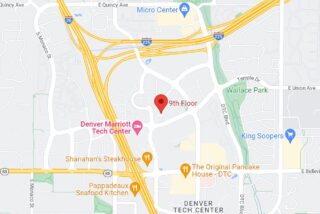 Earlier this year, we wrote a piece about the large and rapidly growing scourge of elderly financial abuse. And while we were only able to briefly introduce the issue itself, we promised to dive deeper into financial exploitation, financial fraud, and investment fraud in future pieces. In this piece we want to focus on financial exploitation of seniors; what it is, how it can happen, and how seniors and their families can prevent it.
Earlier this year, we wrote a piece about the large and rapidly growing scourge of elderly financial abuse. And while we were only able to briefly introduce the issue itself, we promised to dive deeper into financial exploitation, financial fraud, and investment fraud in future pieces. In this piece we want to focus on financial exploitation of seniors; what it is, how it can happen, and how seniors and their families can prevent it.
Recall that we defined Exploitation as the illegal or improper use of a senior’s resources for another’s profit or advantage, perpetrated by someone the senior knows. In almost all cases, the perpetrator is exploiting their position of authority or responsibility. Having gained the senior’s trust, the perpetrator is given their authority / responsibility by the senior themself.
In other words, financial exploitation is perpetrated by an “insider”, which makes this form of financial abuse potentially less likely, but at the same time, more difficult to detect and ultimately more devastating financially. According to the FBI, the average financial loss to a senior when a stranger is involved is $17,000. Compare that to the average loss when a family member is involved ($43,000), a non-family care giver ($58,000) or a fiduciary, like a trustee or power of attorney ($84,000).
Although there are countless scenarios we could discuss, for the sake of brevity, we want to touch on two: Caregivers and Designated Agents based on a Power of Attorney declaration.
Caregivers are in a unique position of authority and can use that position to extort money from seniors, by, for example, refusing to perform certain services unless the senior pays them to do so. Extortion may include threats of violence. Because caregivers are unlikely to have any legal authority to exploit a senior under their care, they rely on manipulation.
Exposing financial exploitation by caregivers can be challenging because perpetrators may instill fear in an effort to prevent the victim from notifying family members. But families can prevent this type of abuse by 1) carefully vetting any care-givers hired and performing background checks (including financial background checks), 2) designating a family member or members (none of whom are care-givers) to periodically review bank accounts and financial transactions, and 3) paying attention to the non-verbal signals that a senior may be displaying. If a senior family member is being exploited, they know something is wrong and are most likely uncomfortable with it, making it difficult for them to hide.
Designated Agents are authorized, through a Power of Attorney declaration, to handle legal and financial matters for the individual making the declaration. Agents per a Power of Attorney generally have no restrictions as to their authority, and although the majority of Agents handle their responsibilities fairly, the lack of restrictions can open the door for significant exploitation over long periods of time, which is why the average loss when a Power of Attorney or other fiduciary is involved is so high.
Before signing a Power of Attorney (which may be part of a senior’s estate planning documents), the senior must trust the designated agent without question. And even then, exploitation can happen. Even the best-intentioned Agents can make poor decisions if placed in stressful personal situations. If a senior executes a Power of Attorney, they should notify their other family members they have made the declaration and, in order to impose accountability upon their Designated Agent, provide at least one other family member with the ability to view bank and investment account balances, transactions, and statements.
Whereas caregivers rely on manipulation, Agents rely on deception. However, both rely on secrecy, which is why sharing financial information with other family members is critical.
Given the risks that a Power of Attorney entails, seniors may be tempted to simply add someone (such as a child) to their financial accounts as a joint owner. This is never advisable. It opens the senior up to the liabilities of the joint account owner and can alter or frustrate the execution of the senior’s estate plan.
So, while we highly encourage all our clients to draft and periodically review their estate plan regardless of age, it’s even more important that seniors draft their estate plan before they experience any limitations in their mental capacity. Once they become dependent upon someone else, the situation is fraught with risk and the potential for fraud.
If a senior’s estate plan incorporates a Power of Attorney, the plan must also incorporate a system of checks and balances to discourage and detect exploitation. It’s also important that the senior notify all family members of their intent to designate an Agent; it will prevent confusion, surprise, and potential animosity among family members, which often happens when a designation was made but not communicated until after the senior’s incapacity.
A senior’s other professional advisors (CPA / bookkeeper and Financial Advisor) have important roles to play in the prevention and detection of exploitation. Financial advisors have some authority to delay or in some cases deny withdrawal requests from investment accounts if they suspect fraud. This authority relies on a concept called a “Trusted Contact”, a topic we’ll discuss when we cover the prevention of investment fraud, but is one of the reasons we advocate that, when appropriate, our senior clients introduce us to their other professional advisors and to their children.
Which brings us back to the original point of our initial piece; protecting our seniors depends on a family’s willingness to work together with their professional advisors to protect their elderly family members. And while there are numerous laws and regulations in place to protect seniors, the first step in prevention and enforcement begins with you!
We would like to specifically thank Jeremy Cohen, estate planning attorney at Burns, Figa & Wills PC in Denver, for his input and help writing this piece.
For further resources:
https://www.colorado.gov/pacific/dora/protection-vulnerable-adults-financial-exploitation-act
National Adult Protective Services Association | National Adult Protective Services Association

